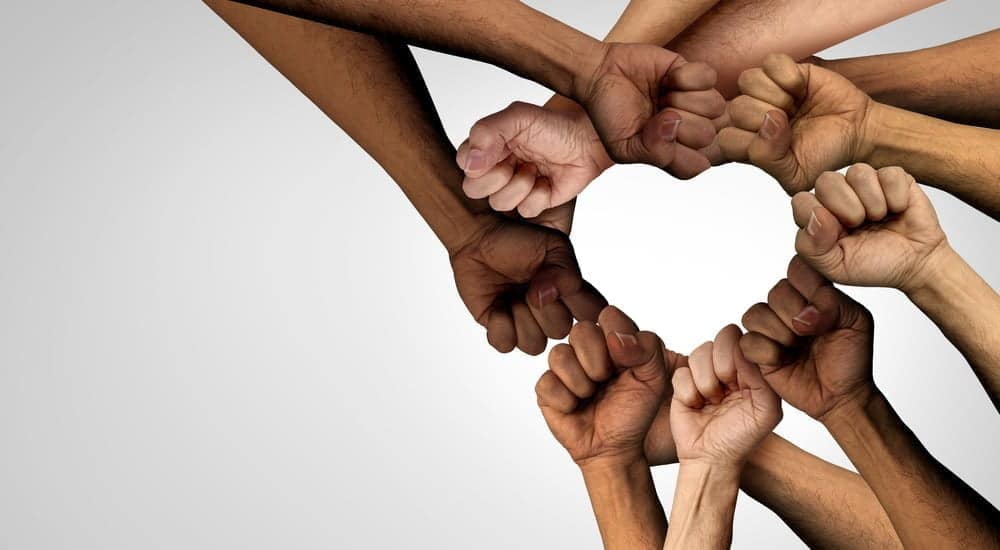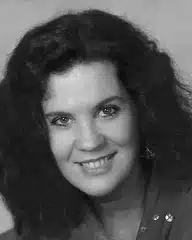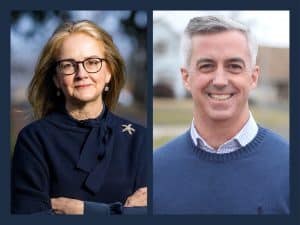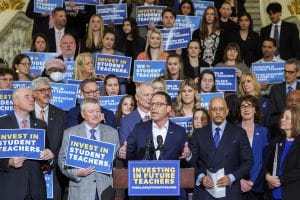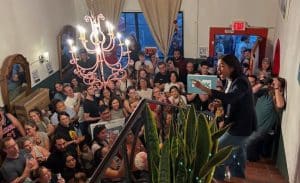The Pennsylvania Human Relations Commission (PHRC) has taken its message on the road.
Monday night in Cumberland County, PHRC executive director Chad Lassiter and a handful of his colleagues greeted Carlisle area community leaders with a discussion about human rights. The sixth such visit – stopping in all 67 counties is the goal – they’re calling their outreach, the Beloved Communities Tour. Registration for the upcoming Centre County stop on Thursday evening is still available.
The purpose of these meetings?
“The PHRC created the Beloved Community framework to assist communities of the commonwealth to intentionally build a culture of peace, understanding, and tolerance despite our differences within the context of an increasingly diverse and interconnected world,” a press release on its website explains.
It’s not possible to understand the purpose of the commission or the Beloved Communities concept without a brief history lesson. One year after the landmark Supreme Court (SCOTUS) Ruling, Brown v. the Board of Education of Topeka, Kansas, the forward thinking Pennsylvania legislature passed the Pennsylvania Fair Employment Act of 1955, restricting workplace discrimination and paving the way for the current PHRC.
Because of violent pushback against progressive change, the concept of the Beloved Community, coined by philosophers and peace activists in the early 20th Century was popularized by Dr. Martin Luther King, Jr., the year after Pennsylvania passed its fair employment act.
READ: On International Day of Peace, Let’s Pledge to Make Peace a Bigger Part of Our Lives
While celebrating Browder v. Gayle, the SCOTUS ruling that desegregated public accommodation following the Montgomery bus boycott, Dr. King named Beloved Community as the goal of their work, “the end is reconciliation; the end is redemption; the end is the creation of the Beloved Community. It is this type of spirit and this type of love that can transform opponents into friends. It is this type of understanding goodwill that will transform the deep gloom of the old age into the exuberant gladness of the new age. It is this love which will bring about miracles in the hearts of men.”
Director Lassiter echoed the slain civil rights leader’s sentiments in his remarks at the YWCA Carlisle. “Tonight is about listening. In every county we go to, we will listen to different issues. Yours might not be white supremacy. Yours might not be LGBTQ+. Yours might be something entirely different. But in every case, we will have to meet the issues with respect for our common humanity.”
Lassiter acknowledged a growing divide, a polarization in the country, “everywhere prejudice meets power, we have problems.” Still, despite often tragic situations – Lassiter listed the names of a dozen recently murdered black men: George Floyd, Philando Castille and others – Lassiter hopes for peace.
The director also walks the walk, bringing his willingness to listen to groups and organizations that – to others – already seem overly loud. Recounting an escort by Pennsylvania State Troopers to meet the Grand Dragon of the Ku Klux Klan, the self-described 6’6” man who “doesn’t look over [his] shoulder when he leaves the house” saw the issues plaguing society not so much hatred but as “human brokenness.” Lassiter approached his interaction with white supremacists by embracing a higher level of decency, calling the Beloved Communities approach a way “to overcome the Black White binary in the world we see.” Lassiter recalled after meeting the Klansman, “I saw his humanity. One thing was certain, he had the courage of his convictions.”
READ: The Culture Wars Are Wars of White Supremacy
When asked about another group with the courage of their convictions, Moms for Liberty (M4L), Lassiter recommended meeting their lies with truths – and reaching out to the applicable state agencies like the Department of Education. When it comes to policies enacted by M4L school boards that ban books or discriminate against youth in schools, Lassiter assured his audience that if people file claims, his colleagues will investigate.
Lassiter enumerated the many objectives pursued by PHRC in the commonwealth, supporting change from the bottom up through individual advocacy and from the top down with regulation and public relations. He encouraged everyone who fell prey to discrimination to file a claim through the Human Relations Commission.
Adrian Garcia, Fair Housing & Commercial Property Division Director, echoed Lassiter’s remarks – reminding people that change would be limited if people did not come forward. “All we can do is prosecute and investigate,” said Garcia. “And we can only do that when there is a complaint.”
Becca Raley, executive director of the Carlisle based Partnership for Better Health pressed for more answers. She recounted a story of a highly qualified refugee she’d assisted with job applications – often for entry level jobs well below his skill sets – only to watch him be rejected when potential employers heard his accent or learned that he was an immigrant. While flummoxed by witnessing blatant racism, Raley remains powerless to help. The victim must file the grievance, himself.
LISTEN: The Growing Fascist Threat to American Democracy, with Jeff Sharlet
Garcia acknowledged the vulnerability a complainant experiences. He urged people to file reports knowing they can step back and reconsider. “Persons have one hundred and eighty days to think it through. They can always withdraw their claim.”
Local Borough Councilor, Safronia Perry, expressed fatigue at the concept that it is generally the person most affected by discrimination that is expected to make real change happen. “I’m tired. I grew up here. There were places, neighborhoods, that as a [Black] kid you could not go. We grew up learning how to get by. And now we’re the ones who are supposed to teach others to fix it.”
Local activist Donny Martinez identified people his own age who self-censor. Looking around the room, he acknowledged the dearth of young people. He explained that BIPOC youth and young adults felt disconnected from the system. And when they learn about civil rights discussions happening in the community, it doesn’t seem genuine. “I only heard about this meeting from the former mayor. I spoke to other people about coming. They don’t think it really applies to them.”
As the discussion wore on, audience members became more candid, citing instances of housing and neighborhood exclusion. Pick-up trucks flying enormous confederate flags. Racial epithets hurled at Asian pedestrians walking downtown. Children of color taunted on their way to school. Audience members began to cry.
Director Lassiter promised to return in the spring eager to expand the dialogue – which he believed possible, “if everyone here commits to bring someone with them. Bring someone young. If everyone commits to bring young people that don’t look like you.”
Lassiter acknowledged that he’s still learning new ways people are harassed – even after decades of civil rights advocacy. He agreed that the burden to fix the problem of discrimination in the workplace – in the case of the refugee, but also in the case of the multi-generational local – rests squarely on the shoulders of the victim. And the oppressed are expected to battle against systemic racism even as they endure it.
READ: Pennsylvania’s Prayer Warrior: Abby Abildness and Her Dominionist Crusade in the Commonwealth
His message? Recognize each other’s humanity, “even the people we don’t like.”
Individuals with power must walk beside a person without, “Be an ally. Be an accomplice. Be a good person!”
Support the worker through filing a claim. Support the student who files a claim. If people try to stack the school board with haters who tell lies – be armed with the truth.
The PHRC has begun by stepping out of their offices to communicate to every one of sixty-seven Pennsylvania counties with their Beloved Communities message. After nearly seventy years prosecuting claims of discrimination, the PHRC wants to let people know that their rights are protected, opening community dialogue in the process.
PHRC needs hosts for their outreach. Agencies across the commonwealth are encouraged to plan a Beloved Community event in their county.
Maddie Young, the President and CEO of YWCA Carlisle hosted the event Monday night, explained that her organization’s mission was “the empowerment of women and girls and the pursuit of peace, justice and freedom.” She felt hosting the Cumberland County leg of the Beloved Communities tour fit that mission. Young feels that getting more people involved on peace, justice and freedom issues requires getting more people committed to the cause. “For many people I talk to – they hear those conversations about racism or equality, but they don’t see the urgency. People don’t know where they fit in the solution.” Young continued, “It’s incumbent on organizations like ours to let people know where they can fit in.”
Bucks County does not yet have a Beloved Communities meeting scheduled. Interested agencies may contact Amanda Brothman at ambrothman(at)pa.gov.
